Alphabet familiarity Alphabet Worksheets for Ages 4-8
9 filtered results
-
From - To
Unlock the world of letters with our "Alphabet Familiarity Worksheets" designed specifically for children ages 4-8! These fun and engaging worksheets help young learners recognize, identify, and write both uppercase and lowercase letters. Packed with dynamic activities such as matching, tracing, and coloring, our resources make learning the alphabet enjoyable and effective. Perfect for preschool and early elementary classrooms, these worksheets are ideal for enhancing letter recognition skills and building a strong foundation for reading and writing. Dive into a variety of interactive exercises that spark curiosity and foster a lifelong love for learning the alphabet!
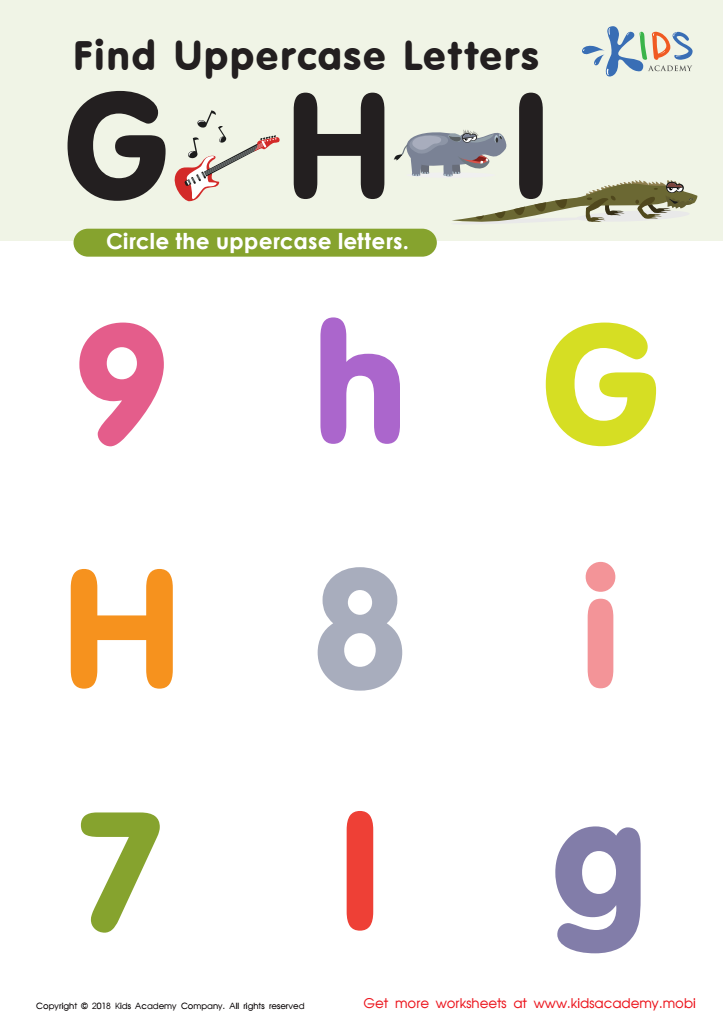

Find Uppercase Letters G, H, and I Worksheet
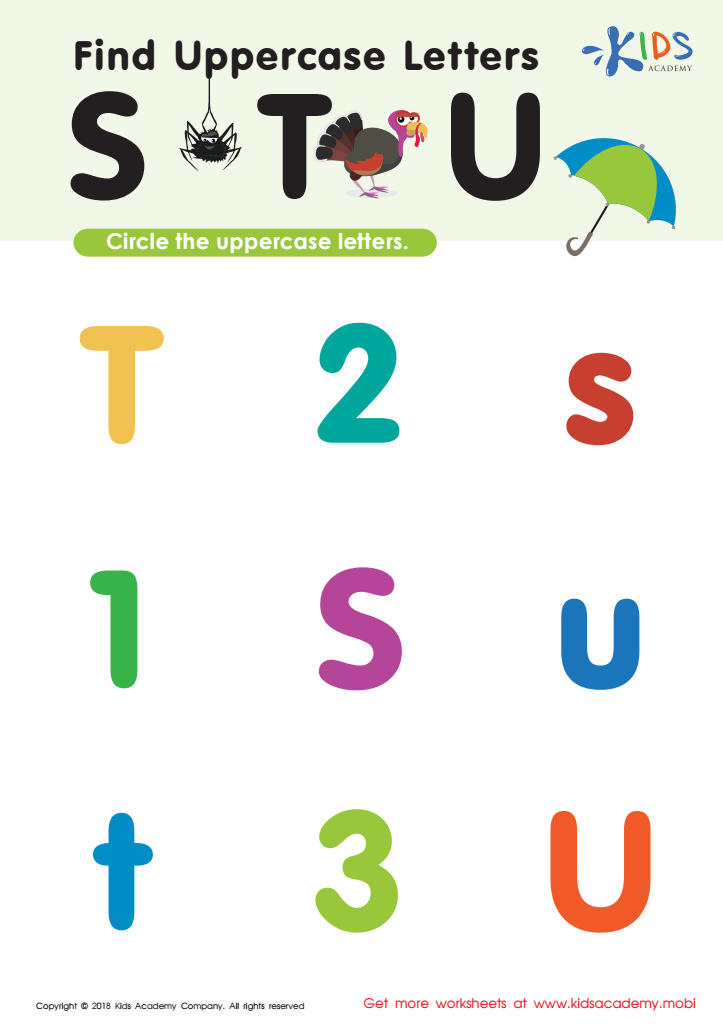

Find Uppercase Letters Worksheet
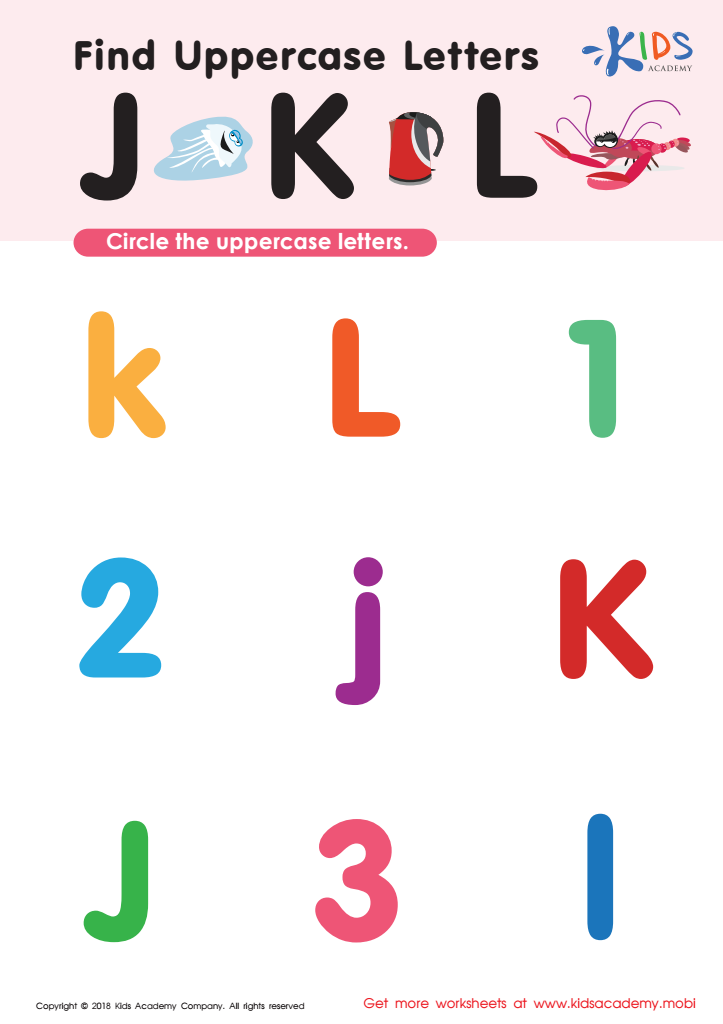

Find Uppercase Letters J, K, and L Worksheet
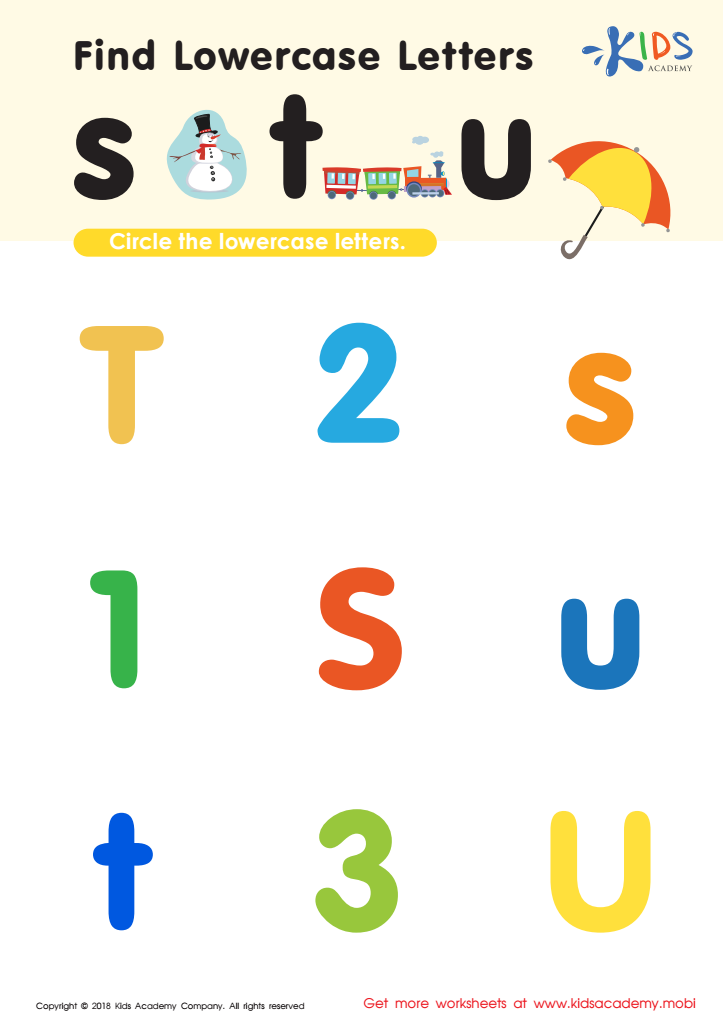

Find lowercase Letters s t u Worksheet
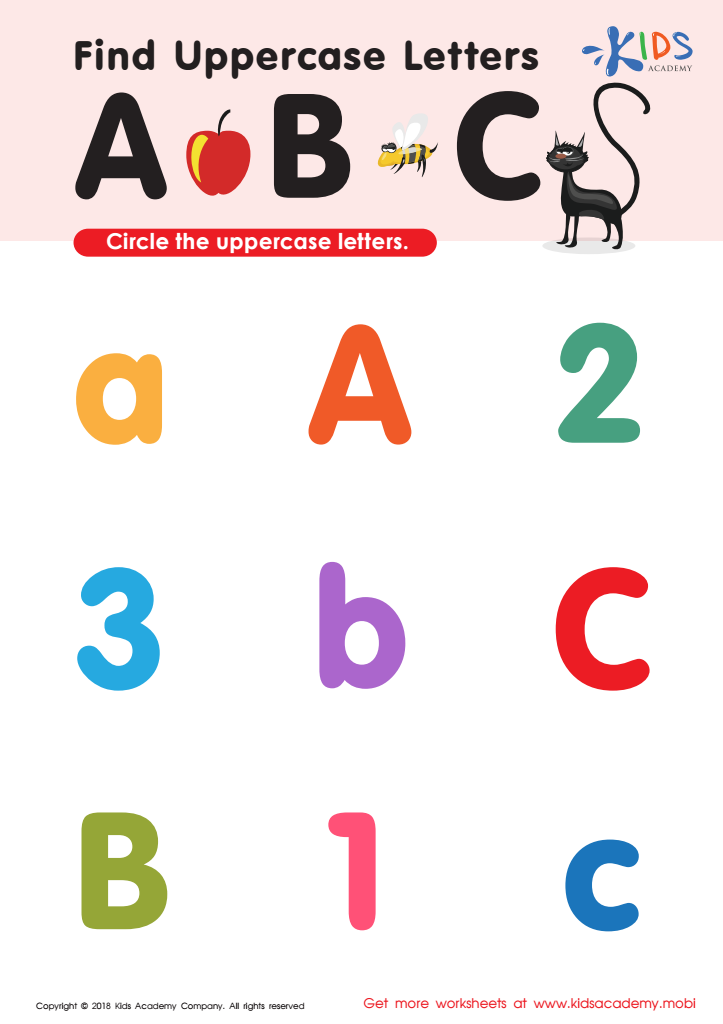

Find Uppercase Letters A, B, and C Worksheet
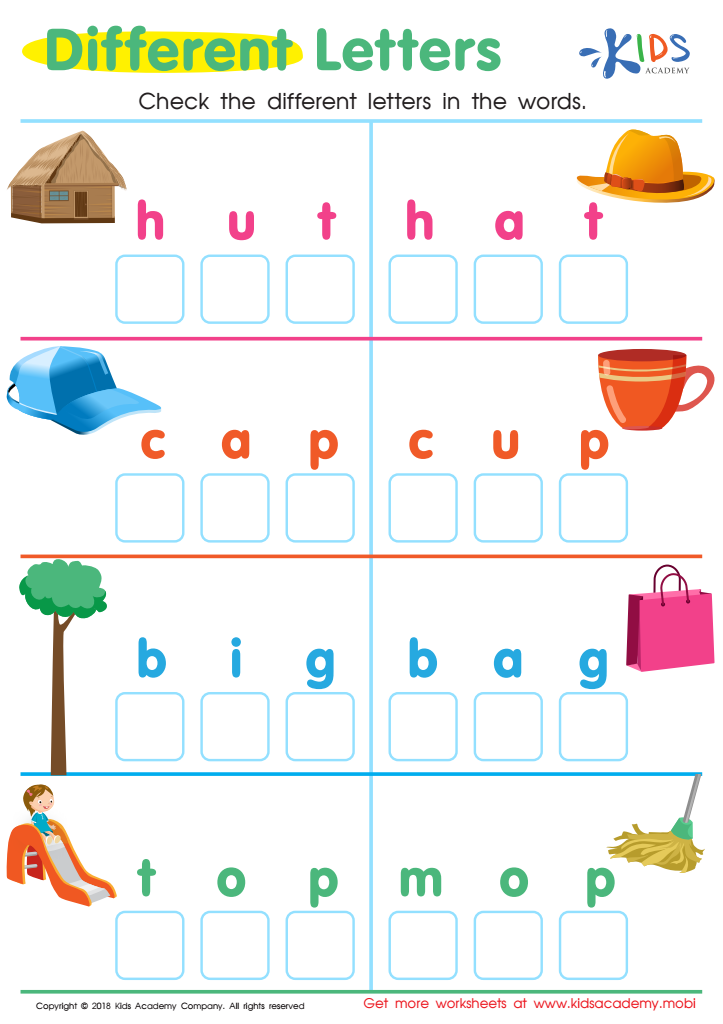

Different Letters Reading Worksheet
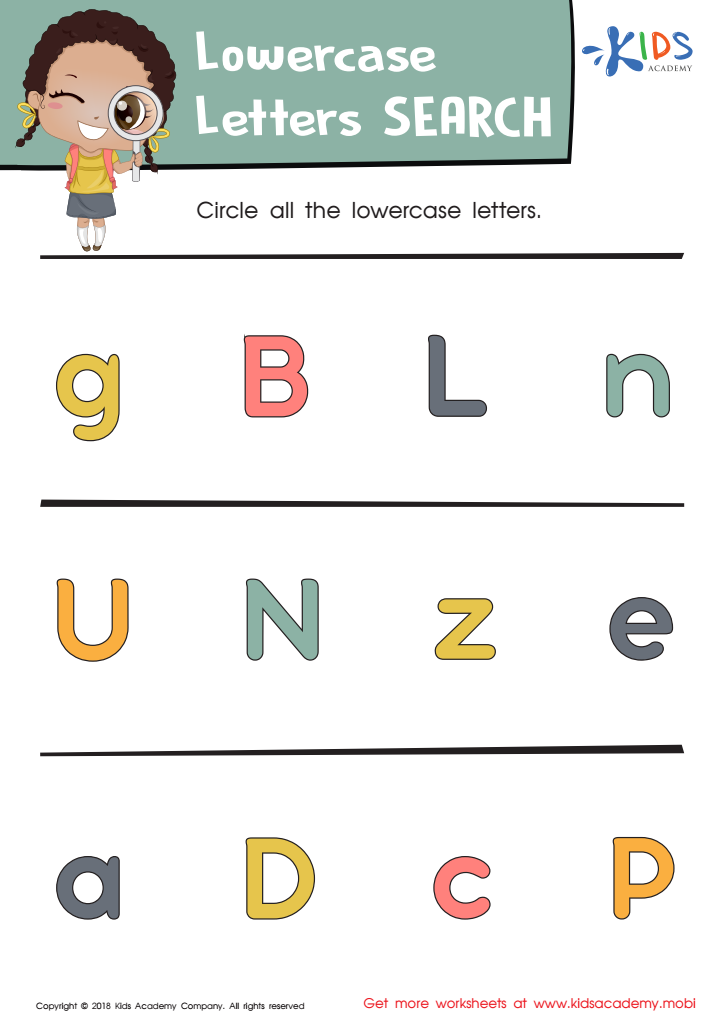

Lowercase Letters Search: Assessment Worksheet
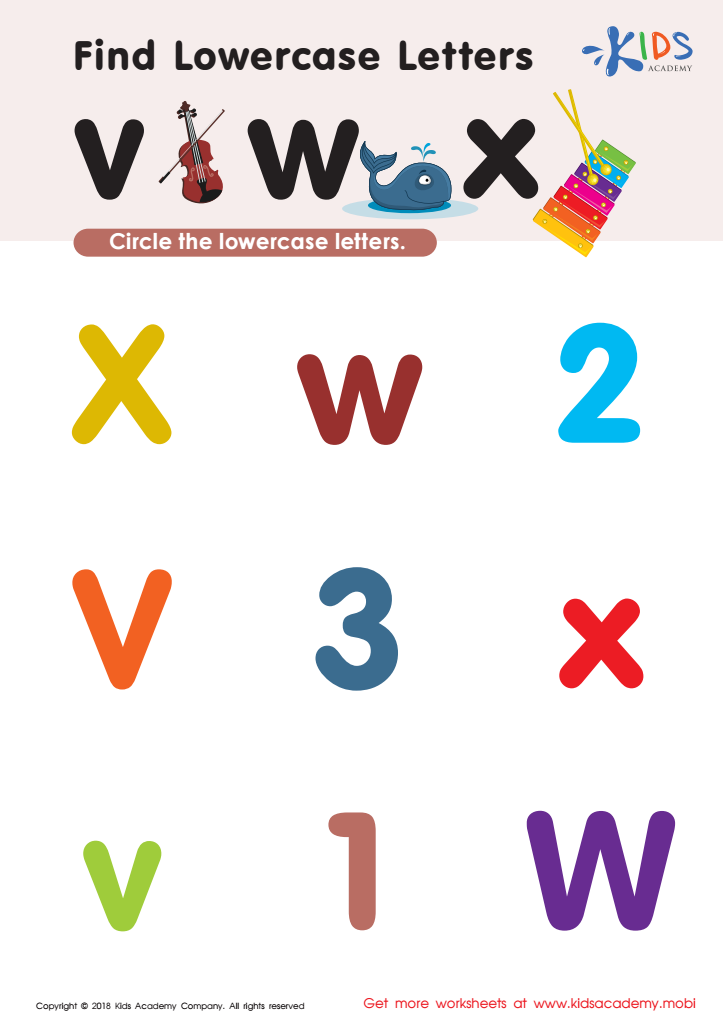

Find Lowercase Letters v w x Worksheet


Phonological Awareness: Assessment 1 Worksheet
Alphabet familiarity is crucial for children aged 4-8, as it lays the foundation for reading and writing skills, which are vital for academic success. At this stage, children are developing their language skills, and the alphabet serves as the building blocks of literacy. Familiarity with letters enhances phonemic awareness, allowing children to recognize sounds associated with each letter and blending sounds to form words. This foundational knowledge promotes confidence and encourages a love for reading.
Parents and teachers should prioritize alphabet familiarity for several reasons. First, early mastery of letters facilitates smoother transitions to more complex literacy concepts, such as spelling and grammar. Additionally, recognizing letters aids in classroom activities that involve reading, writing, and problem-solving, making learning more engaging for young learners.
Moreover, strong reading skills can enhance overall academic performance, positioning children for greater success in their educational journey. By actively supporting alphabet familiarity through interactive games, songs, and reading materials, parents and teachers can foster a positive learning environment. Ultimately, investing time and resources into improving alphabet knowledge not only benefits a child's educational experience but also nurtures critical thinking and communication skills that are essential throughout life.

 Assign to My Students
Assign to My Students


















